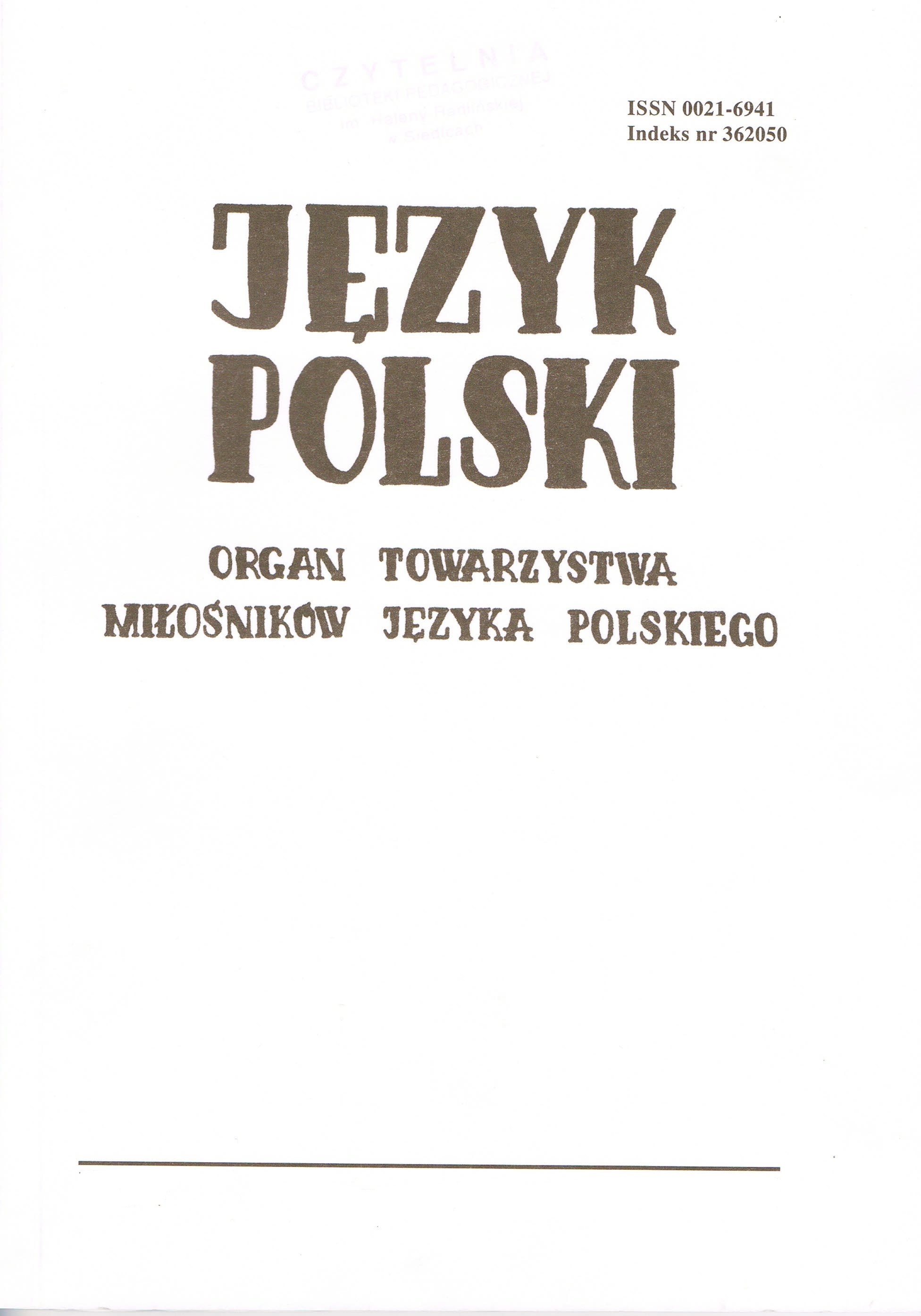Koordynacja leksykalno-semantyczna w systemie współczesnej polszczyzny (na materiale Narodowego Korpusu Języka Polskiego)
Lexico-semantic coordination in the system of contemporary Polish (on the basis of the National Corpus of Polish)
Author(s): Agnieszka Patejuk, Adam PrzepiórkowskiSubject(s): Language and Literature Studies
Published by: Towarzystwo Miłośników Języka Polskiego
Keywords: hybrid coordination; grammatical functions; National Corpus of Polish; system and norm
Summary/Abstract: The aim of this paper is to refute the thesis by Zygmunt Saloni that structures such as “Kto, co i komu dał?” (“Who gave what to whom?”, literally: “Who, what and whom gave?”) do not belong to the system of contemporary Polish and that their conjunctionless counterparts (here: “Kto co komu dał?”, literally: “Who what whom gave?”) should be used instead. We show that the discussed phenomenon, called lexico-semantic coordination, is frequent in the National Corpus of Polish and that it occurs in a variety of genres and with a variety of pronouns — not just wh-words, but also n-words, various kinds of indefinites, pronouns expressing universal quantification, etc. Moreover, relevant examples may be found in a number of linguistic works, where they are cited as grammatical, without any comment on their possible unacceptability. All this leads to the conclusion that lexico-semantic coordination belongs both to the norm and to the system of contemporary Polish.
Journal: Język Polski
- Issue Year: 2014
- Issue No: 2
- Page Range: 104-115
- Page Count: 12
- Language: Polish

